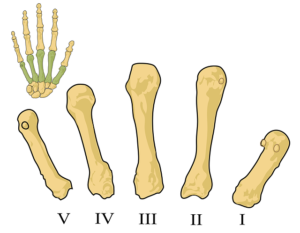Moderate and High Disease Activity Predicts the Development of Carotid Plaque in Rheumatoid Arthritis Patients without Classic Cardiovascular Risk Factors: Six Years Follow-Up Study – DocWire News
This article was originally published here
J Clin Med. 2021 Oct 27;10(21):4975. doi: 10.3390/jcm10214975.
ABSTRACT
Patients with rheumatoid arthritis (RA) have a higher incidence of subclinical atherosclerosis and cardiovascular (CV) disease. It is postulated that the ap…….

This article was originally published here
J Clin Med. 2021 Oct 27;10(21):4975. doi: 10.3390/jcm10214975.
ABSTRACT
Patients with rheumatoid arthritis (RA) have a higher incidence of subclinical atherosclerosis and cardiovascular (CV) disease. It is postulated that the appearance of accelerated atherosclerosis in these patients is a consequence of the inflammation present in the disease. In this study, we aim to determine if baseline disease activity in patients with RA predicts the future development of carotid plaque. A set of consecutive RA patients without a history of CV events, cancer or chronic kidney disease, who did not show carotid plaque in a carotid ultrasound assessment, were prospectively followed up for at least 5 years. At the time of recruitment, CV risk factors and disease-related data, including disease activity scores, were assessed. At the end of the follow-up, a carotid ultrasound was repeated and patients were divided into two groups; those who developed carotid plaque, and those who did not. A multivariable regression analysis was performed to define the predictors for the development of carotid plaque. One hundred and sixty patients with RA were followed up for an average of 6 ± 1 years. After this time, 66 (41%) of the patients had developed carotid plaque, and 94 (59%) did not. Patients with carotid plaque were significantly older (47 ± 13 vs. 55 ± 9 years, p < 0.001) at baseline, were more frequently diabetic (0% vs. 6%, p = 0.028), and had higher total cholesterol (197 ± 36 vs. 214 ± 40 mg/dL, p = 0.004) and LDL cholesterol (114 ± 35 vs. 126 ± 35 mg/dL, p = 0.037) at the beginning of the study. After multivariable adjustment, patients who were in the moderate and high disease activity (DAS28-CRP) categories displayed a higher odds ratio for the appearance of carotid plaque (OR 2.26 [95% CI 1.02-5.00], p = 0.044) compared to those in the DAS-28-CRP remission category. Remarkably, when patients were divided in patients within the low-risk SCORE category, and patients included in the remaining SCORE categories (moderate, high and very high), the relation between DAS28-CRP and the development of carotid plaque was only significant in the low-risk SCORE category. In conclusion, disease activity predicts the future development of subclinical atherosclerosis in patients with RA.
PMID:34768495 | DOI:10.3390/jcm10214975







